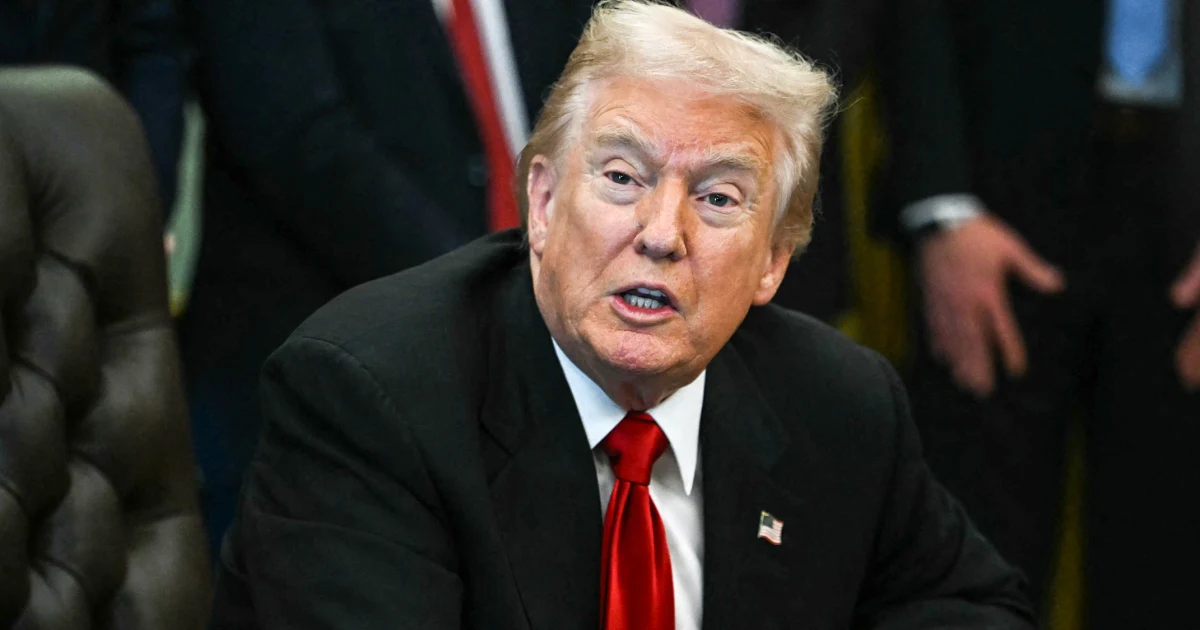Copyright NBC News

Welcome to the online version of From the Politics Desk, a newsletter that brings you the NBC News Politics team’s latest reporting and analysis from the White House, Capitol Hill and the campaign trail. Plenty has changed in politics this week following some big elections. But one thing is the same right now: The federal government is still shut down. Our Congress team has the latest on that. Plus, Kristen Welker previews three big questions about the midterms — all of which were prompted by important nonelection happenings in politics this week. Sign up to receive this newsletter in your inbox every weekday here. — Scott Bland Two warnings for Republicans in the New Jersey governor results By Sahil Kapur, Frank Thorp V, Brennan Leach and Gabrielle Khoriaty Senate Democrats on Friday made an offer to reopen the government, proposing a one-year extension of expiring Affordable Care Act subsidies alongside a package of funding measures in order to secure their votes. The offer, rolled out on the floor by Senate Minority Leader Chuck Schumer, D-N.Y., includes a “clean” continuing resolution, which would reopen the government at current spending levels, and a package of three bipartisan appropriations bills to fund some departments for the full fiscal year. “After so many failed votes, it’s clear we need to try something different,” Schumer said, calling it “a very simple compromise.” The short-term health care funding extension would prevent a massive increase in insurance costs for millions of Americans on Obamacare next year. In addition, Democrats proposed creating a bipartisan committee to negotiate a longer-term solution. “This is a reasonable offer that reopens the government, deals with health care affordability and begins a process of negotiating reforms to the ACA tax credits for the future,” Schumer added. “Now, the ball is in the Republicans’ court. We need Republicans to just say yes.” Senate Majority Leader John Thune, R-S.D., called the Democratic offer a “nonstarter.” “The Obamacare extension is the negotiation. That’s what we’re going to negotiate once the government opens up. ... We need to vote to open the government — and there is a proposal out there to do that — and then we can have this whole conversation about health care,” he said. The proposal was the idea of Sen. Gary Peters, D-Mich., according to two sources with knowledge of the matter. He shopped it around to Democratic senators before it was rolled out and spoke immediately after Schumer on the floor. Peters has been part of rank-and-file discussions with Republicans to find a way to reopen the government. Read more here → New campaign announcements raise key questions for 2026 By Kristen Welker This week’s elections for New Jersey and Virginia governors, New York City mayor and California’s redistricting ballot proposition revealed some clues about the 2026 midterms. Across the big races, there were some clear lessons about the salience of affordability as a top issue for voters, high Democratic enthusiasm, and the GOP’s struggles to re-create the Trump coalition. And the California measure will have a practical impact on the battle for the House next year by tilting some seats in Democrats’ favor. But a trio of campaign announcements that happened after Tuesday’s elections speak to some other key questions about the 2026 midterms. Take former House Speaker Nancy Pelosi’s decision to announce her retirement after a storied career in Congress, passing the torch to a new generation. That generational angst within the Democratic Party is fueling primary challenges against incumbents across the country. So will the 2026 elections bring a new generation of leaders to Washington? Also this week, Democratic Rep. Jared Golden, a moderate who represents a district in rural Maine, announced that he would not seek re-election, citing dysfunction and an uptick in political violence. Golden is one of about a dozen Democrats who represent a district Donald Trump won last year. So how can Democrats hang on to those Trump-won districts moving forward? And today, GOP Rep. Elise Stefanik announced that she is running for governor of New York, wasting no time to take aim at Democratic Gov. Kathy Hochul and tie Hochul to New York City Mayor-elect Zohran Mamdani. But Mamdani just had a big win, and a handful of other cities in New York state elected progressive mayors, too. So are these wins positive signs for progressives in 2026, and could they create even more headwinds for GOP candidates like Stefanik running in Democratic areas next year? We’ll delve into the lessons from this week’s elections and the latest on the ongoing government shutdown on this week’s “Meet the Press” with House Minority Leader Hakeem Jeffries and Sen. James Lankford, R-Okla. That’s all From the Politics Desk for now. Today’s newsletter was compiled by Scott Bland and Owen Auston-Babcock. If you have feedback — likes or dislikes — email us at politicsnewsletter@nbcuni.com



